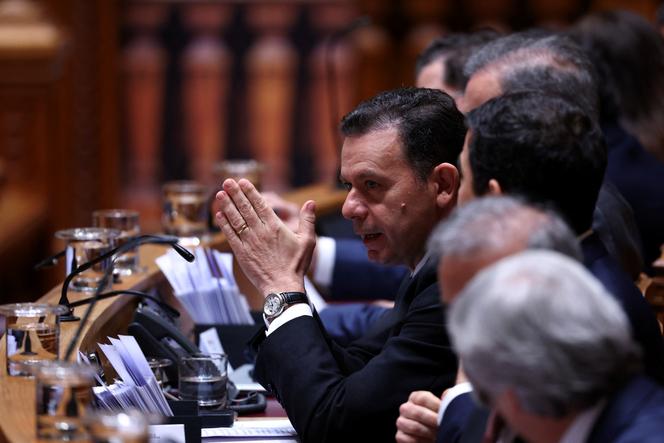


Portugal's center-right government, whose Prime Minister Luis Montenegro is embroiled in a controversy over a possible conflict of interest, fell on Tuesday evening, March 11, after it lost a parliamentary no-confidence vote.
The Socialists, the main opposition party, and the far-right Chega party both voted to bring down the government, which could lead to early parliamentary elections in the next few days if the president chooses to dissolve the assembly.
The exact vote count wasn’t immediately available, but the speaker of parliament José Pedro Aguiar-Branco said the center-right government was defeated. The government, a two-party alliance led by the Social Democratic Party and in power for less than a year, had just 80 seats in the current 230-seat legislature. An overwhelming majority of opposition lawmakers had vowed to vote against it.
A new election, likely in May, pitches the country of 10.6 million people into months of political uncertainty just as it is in the process of investing more than 22 billion euros ($24 billion) in EU development funds. The continent, meanwhile, is facing challenges to its security and economy.
The government asked for the confidence vote, saying it was needed to "dispel uncertainty" about its own future amid the simmering political crisis that has focused on Montenegro and distracted attention from government policy. The controversy has revolved around potential conflicts of interest in the business dealings of Montenegro’s family law firm.
Montenegro, who says he’ll stand for reelection if the government falls, has denied any wrongdoing. He said he placed control of the firm in the hands of his wife and children when he became Social Democratic leader in 2022 and has not been involved in its running. It recently emerged that the firm is receiving monthly payments from a company that has a major gambling concession granted by the government, among other sources of revenue.
Opposition parties have demanded more detailed explanations from Montenegro, and the main opposition center-left Socialist Party wants a parliamentary inquiry that would dog the government for months. The government, made up of the Social Democratic Party and its smaller ally the Popular Party, has 80 seats in the 230-seat legislature. It has been in power for less than a year.
Portugal has also been caught up in a rising European tide of populism , with a radical-right party surging into third place in last year’s election. Voter discontent with a return to the polls could play into the hands of the Chega (Enough) party, which has fed off frustration with mainstream parties.
The Social Democrats are hoping that economic growth estimated at 1.9% last year, compared with the EU’s 0.8% average, and a jobless rate of 6.4%, roughly the EU average, will keep their support firm. The next general election in Portugal was scheduled for January 2028.
